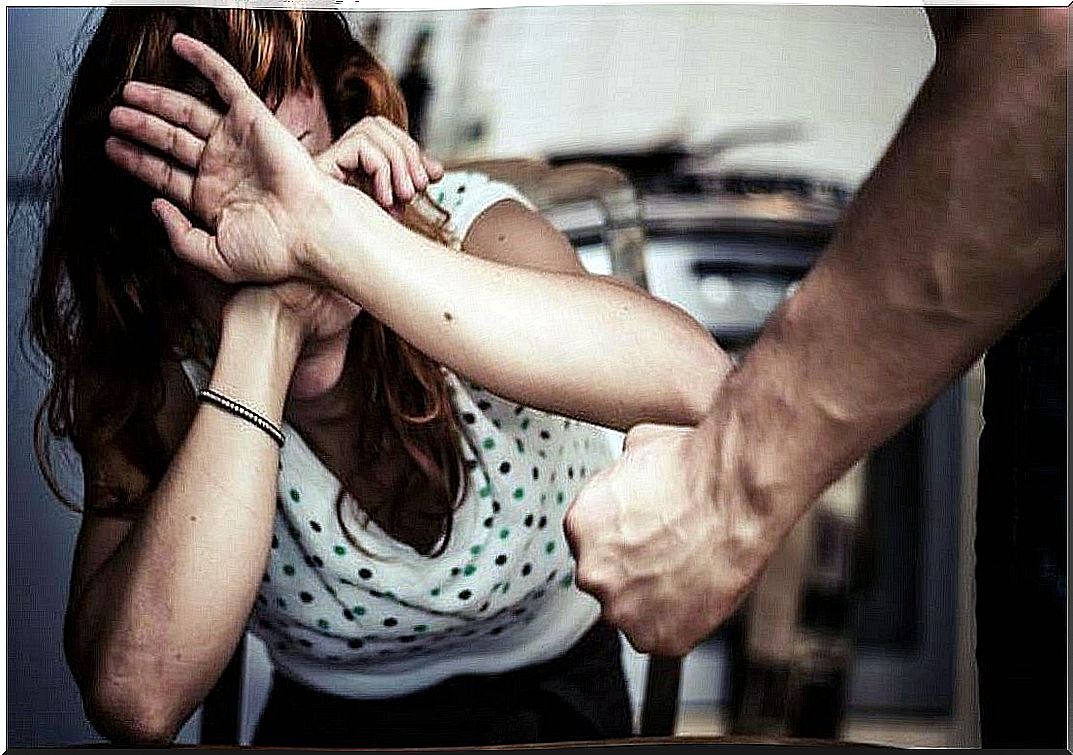Passive Aggressiveness In Relationships: How To Deal With It?
Often times, aggressive modes are associated with the explicit and the obvious, such as an argument with shouting and insults. However, they can take different forms, such as passive aggressiveness in dating relationships.
To think about it, we could visualize the iceberg of violence , in which the visible is part of the most violent modalities (physical abuse). However, there are other implicit and less visible variants in which passive aggressiveness is one of them.
Passive-aggressive personalities are people who go around what they feel and what they want; are not clear. But to get what they need they do it indirectly, exercising manipulation as their main strategy.
Characteristics of passive aggressiveness
Let’s look at the characteristics of passive aggressiveness in relationships to help us identify the traits that define it. Let’s be vigilant, because we can be involved in them.
Passive aggressiveness is latent, covert. It uses behaviors or expressions that, a priori , seem unintentional. Even, as manipulation is one of the characteristics, it confuses the person who is the object of violence, making him doubt what is happening.
This type of aggressiveness is not characterized by the outburst, but is disguised and contained. Although passive-active aggression is deliberate, it appears innocent and harmless.
It is important to clarify that it is aggressive after all. This is hostile behavior. So there are always some discussions about the proper use of the term passive . It has even been withdrawn from the fifth edition of the Diagnostic and Statistical Manual of Mental Disorders (DSM-V).
Whatever bond we have with the other person, it will be a toxic relationship. It can occur in any type of relationship and not only in love relationships, but also family, friendly and work relationships.

Passive aggressive behavior in relationships
Passive aggressive behavior becomes apparent in a number of ways. Here we are going to comment on some of the most important and relevant. Pay attention.
Manipulation, victimization and blaming
Manipulating the other is the most typical or typical of passive aggressiveness in relationships. In turn, one of the ways to manipulate has to do with making the other person feel guilty, as if they were responsible for their own discomfort or failure.
In passive aggressiveness, the one who exercises it presents himself as a victim, creating an environment that is disconcerting for the other. Common phrases are “you better do it”, “I’m not like that, it’s you who provokes me.”
Devaluation of the other person
Some common behaviors are devaluation of the other person. Your feelings are invalidated and any comment about a change request is considered childish.
Criticism is permanent and is disguised under the supposed intention of doing it for the common good, as if it were an aid to grow and improve. Well it is not. Even in those cases where the other person has achieved something important, instead of acknowledging it, they are told that it could have been better .
Law of ice, silence and isolation
A person who exercises passive aggressive behavior in relationships is unable to refer to their feelings, so they respond that “nothing is wrong” when asked. They can do everything alone.
At other times they remain silent and even refuse to answer when a question is asked. They do use many gestures and non-verbal behaviors that convey a message of disinterest or rejection. When faced with a conflict, they assume an evasive attitude, as long as they do not face it and that it is difficult for the other person to start the conversation.
Airs of importance
This characteristic is a correlate of the previous one: one of the ways to devalue the other is to promote one’s own importance. In this way, we leave our interlocutor as small and insignificant. Highlighting our achievements and being overly critical of the actions of others is one of the forms this aggressiveness takes.
Put obstacles and obstacles
This form is expressed above all in the workplace. Many times, the hostility of other people is experienced through difficulties that complicate the task or that prevent us from achieving it.
Sometimes because information is hidden, others because titanic tasks are requested. In the work environment, many people end up getting tired of this situation, feel unmotivated and may even leave their job.
False humor
Amusing or laughing at the expense of others, with sarcasm or comments that mask hostility. Ironic, provocative, humiliating or disapproving comments. Many times the other person is accused of being exaggerated and having no humor when trying to draw attention to the matter.
How to deal with passive aggressiveness in relationships?

It is important to look at yourself and ask yourself where we are. While in some relationships we may be the ones to be aggressive, there are other cases in which we may be the ones being aggressive.
Learning to set limits is a key social skill that is based on the recognition that we deserve respect. There are those who do not find it and, in part, because they do not know how to do it in an assertive way. Therefore, they seek to avoid conflict at all costs.
It is important to keep in mind that passive aggressive behavior is maintained over time, so not only the relationship is affected, but also our self-esteem. It can be good to ask the other how they feel; not because we are going to get an answer, but because we express concern for their well-being.
However, in addition to the actions themselves, if we have a relationship with a person who is passive aggressive, it is important to express how we feel about their behaviors and invite them to seek professional help.
Not all origins are the same, and not all people need the same thing. Sometimes passive aggressiveness in relationships can come from experiences in which it has not been possible to learn to manage emotions.
Perhaps expressing fear, pain and anger was not allowed, denying the emotional range of human beings. Or it can also come from hostile growth contexts, in which you learn to be on alert to survive.
Social skills to overcome passive aggressiveness
Perhaps at first, when we realize the situation, we try to soften the gravity, justifying the attitudes of the other person. However, it is difficult that a relationship with these levels of toxicity can come to fruition. Especially if we can’t get the other to be interested in a change.
Sooner or later these relationships end up making us feel little respected and valued. We are up in arms most of the time, trying to defend ourselves.
People who exercise passive aggressiveness will have to learn to work on their emotions, to express them and to negotiate, as well as to value other people and recognize the achievements of others. One of the focuses will be on the development of social skills.









